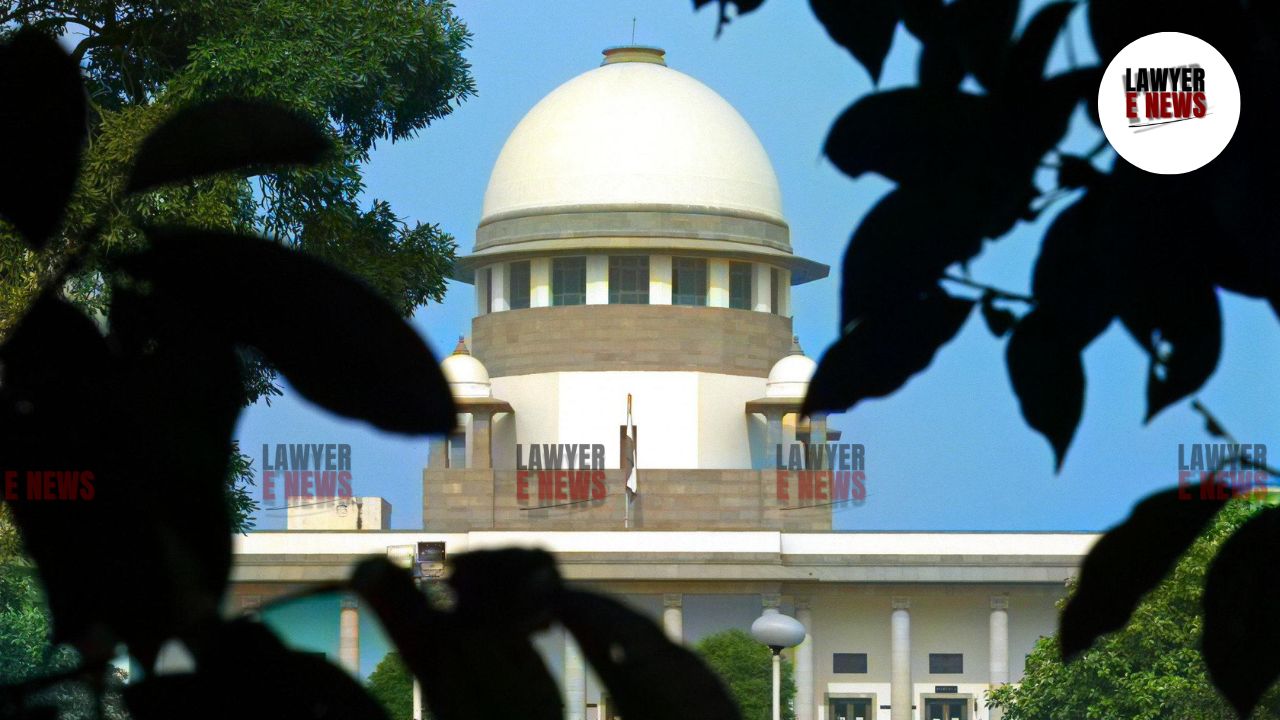-
by Admin
16 February 2026 1:47 PM



Supreme Court emphatically clarified the test for invoking powers under Section 319 of the Code of Criminal Procedure, 1973. The bench of Justice Dipankar Datta and Justice Manmohan, while setting aside the judgment of the Punjab & Haryana High Court, held that the High Court had “fallen into an error by interfering with the well-reasoned satisfaction arrived at by the Sessions Court" when it summoned two additional accused, namely Rajesh Kumar and Neeraj, in an attempted murder case arising out of a violent assault on the appellant.
The Court reiterated that ”though only a prima facie case is to be established from the evidence led before the Court, not necessarily tested on the anvil of crossexamination, it requires much stronger evidence than mere probability of his complicity”, relying on the settled position of law as laid down in Hardeep Singh v. State of Punjab, (2014) 3 SCC 92.
The genesis of the case was a violent episode during a volleyball match on 9th February 2020, in Karnal, Haryana, where the appellant, Satbir Singh, a serving army personnel, was allegedly assaulted with deadly weapons by multiple individuals. The charge-sheet named only Mukesh as an accused, even though Satbir Singh, after regaining consciousness, categorically named Rajesh Kumar, Neeraj, Sagar alias Bittoo, and Ankit as co-assailants. Dissatisfied with the exclusion of these individuals, Satbir Singh invoked Section 319 CrPC before the Sessions Court, which, after considering the deposition of the appellant, ordered the summoning of Rajesh Kumar and Neeraj.
The Supreme Court criticized the High Court for disregarding the trial court’s satisfaction, observing, “we have no hesitation to hold that the conclusion of the Sessions Judge was a plausible conclusion and not an absurd one so as to warrant interference by the High Court in the exercise of its revisional jurisdiction.” The Court further stated that “the High Court failed to appreciate the significance of judicial satisfaction based on evidence available before the Court rather than relying on police reports clearing the accused.”
The Supreme Court, analyzing the evidence, noted that the testimony of Satbir Singh had specifically described the role of Neeraj and Rajesh Kumar. The appellant had clearly stated that “Rajesh threatened me with life” and “Neeraj caught hold of me, facilitating the stab wounds inflicted by Mukesh”. The Court observed that such statements “amount to something more than mere suspicion” and satisfied the standard required for summoning under Section 319 CrPC.
Emphasizing the correct application of Section 319, the Court held that “the power under Section 319 CrPC is meant to ensure that no real culprit escapes merely because he was not named in the original charge-sheet, provided that during the course of trial, cogent material emerges against him”. However, the Court cautioned that “this power is to be exercised sparingly and not in a casual manner”.
The Court clarified the legal position that “the threshold for summoning under Section 319 is higher than the prima facie standard applicable for framing of charge, yet it is not as high as proof beyond reasonable doubt required for conviction”. The Court stressed that ”the Sessions Judge formed a satisfaction higher than a prima facie satisfaction” and such satisfaction should not have been substituted by the High Court.
In conclusion, the Court held that “the application under Section 319 CrPC was rightly allowed by the Sessions Judge and the High Court erred in reversing the said order.” Allowing the appeal, the Supreme Court directed that “Rajesh Kumar and
Neeraj shall be summoned and tried along with the principal accused.”
The judgment reaffirms that “an act of the court should not be used to shield those against whom there is serious evidence merely because earlier investigations exonerated them.”
Date of Decision: 1st April 2025
